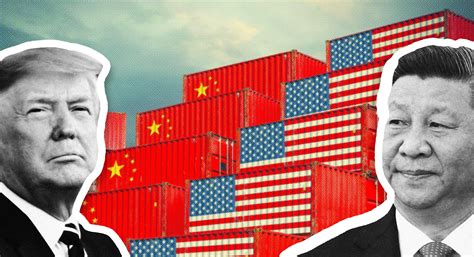—
Challenges Ahead
Northern Irish businesses are facing uncertain times as the European Union prepares to retaliate against U.S. President Donald Trump’s trade war. The potential ramifications of this conflict could lead to significant financial losses for companies in the region.
Brexit Complications
With Northern Ireland straddling both the United Kingdom and EU markets, concerns have been raised about the effectiveness of systems that were designed to help businesses mitigate additional costs stemming from tariffs on U.S. imports.
Expert Insight: Industry leaders have voiced worries about the complicated process of claiming back EU tariffs, emphasizing the urgent need for clarity and support in navigating these challenges.
Trade Dynamics
Before Trump’s trade war even began, companies in Northern Ireland were grappling with issues related to reimbursement for tariffs. The existing system has been criticized for being slow and inefficient, leaving businesses at a disadvantage when trying to recoup costs incurred due to trade disputes.
Expert Analysis: Stephen Kelly, CEO of Manufacturing NI, highlighted the burden faced by firms dealing with extensive paperwork and bureaucracy in seeking tariff refunds. This administrative hassle compounds financial strain on businesses already struggling post-Brexit.
Diplomatic Endeavors
Recent diplomatic engagements between London, Brussels, and Northern Ireland underscore the complexity of balancing economic interests amidst escalating trade tensions. Discussions have revolved around finding solutions that safeguard Northern Irish businesses from bearing the brunt of retaliatory measures.
Expert Perspective: Calls have been made for coordinated efforts between UK and EU authorities to address challenges faced by Northern Irish firms. Collaboration is key in ensuring effective mitigation strategies are put in place swiftly.
Perspective from Unionist Leaders
Unionist politicians in Northern Ireland have expressed frustration over feeling sidelined in decisions impacting their region’s economy during international trade disputes. There is a growing sense of disenfranchisement among local leaders who lament not having a seat at the negotiating table amid Brexit uncertainties.
Insightful Viewpoint: Traditional Unionist Voice MP Jim Allister’s remarks shed light on how Northern Ireland’s unique status post-Brexit has left it vulnerable to external influences without adequate representation or control over its economic fate.
Looking Ahead
As discussions continue regarding potential EU retaliation and its implications for Northern Irish businesses, there is a pressing need for proactive measures to protect local enterprises from adverse consequences stemming from global trade conflicts.
In conclusion, amidst mounting uncertainties and evolving trade dynamics, stakeholders must collaborate effectively to shield Northern Ireland’s business community from being collateral damage in larger geopolitical maneuvers.




Leave feedback about this